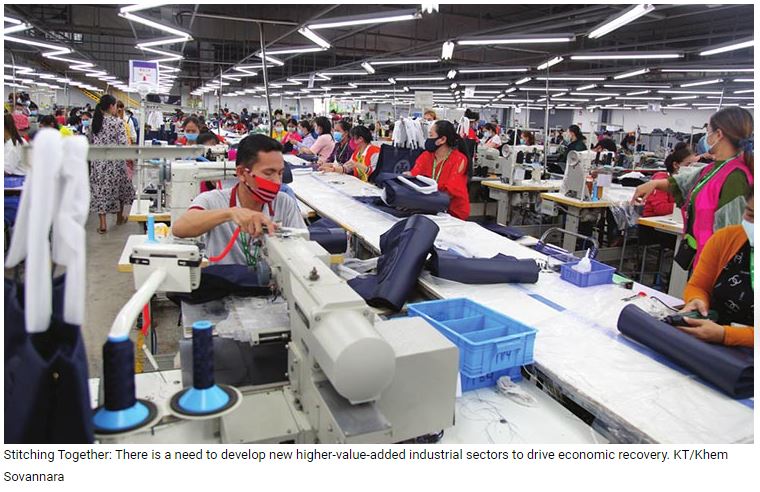Cambodia: Covid shake-up justifies calls for greater market diversification
Over the past decade, Cambodia’s sustained economic success has been mainly due to traditional markets such as textiles, construction, agriculture and tourism sectors. However, the Covid-19 pandemic has exposed the fragile nature of these markets, resulting in cross-ministerial calls for greater market variety.
In a statement released prior to the ‘Automotive and Electronics Sector Roadmap Preview and Industry Sharing’ seminar earlier this month, the CDC noted, “Even as Cambodia seeks to revive these sectors (post-Covid), there is a growing urgency to develop new higher-value-added industrial sectors to drive Cambodia’s economic recovery and longer-term economic modernisation and diversification, which will help Cambodia be more resilient against future economic disruptions.”
The National Institute of Posts, Telecoms & ICT (NIPTICT) said that in the wake of the fourth industrial revolution, start-ups and the technology sector will be a critical part of the Cambodian economy to achieve aspirations of becoming an upper-middle-income economy by 2030.
“Although the country has experienced strong GDP growth of 7 percent per annum, its primary growth sectors are at risk. With an economy dominated by agriculture, textile and manufacturing, the country needs to look to alternative sectors for long-term growth and value creation.”
The Ministry of Posts and Telecommunications (MPTC) is also actively engaging the public through “the introduction of broad-based awareness campaigns such as the annual Cambodia ICT Awards (CICTA) and Women in Tech Awards”, in addition to kickstarting various incubation programmes for tech-related start-ups.
Speaking on the challenges faced by Cambodia’s digitalisation, Thomas Hesketh of Foundation Office Cambodia said that actors at all levels are needed to shape the future of work in a pro-human way.
“In the coming years, not only will jobs be created in sectors that we cannot yet imagine, but also completely new forms of organisational teamwork across national, cultural and age boundaries will emerge.”
“Only if we embrace change together can we shape the future of work for the benefit of all. One major issue will be knowledge and skill development, which runs as a common thread through all chapters,” he added.
The social landscape of Cambodia with its young population, high smartphone penetration and cheap cost of phone data also creates an ideal audience for digital products and solutions.
However, in a study titled “Digital Literacy for Employability and Entrepreneurship among Cambodian Youth”, the UNDP identified a gap in digital literacy amongst consumers that needed to be closed.
The UNDP has suggested a two-pronged resolve to this issue by firstly formulating a “flexible national digital literacy framework”, and secondly “mandating the development of institutional frameworks”.
“The discussions on the literacy models in section 8 provide some references for the Cambodian government to develop a model that suits its most urgent development agenda. We saw that no one-size-fits-all model can be used to formulate the framework. Instead, the best approach for Cambodia now is to cascade or mix some models into 68 Digital Literacy for Employability and Entrepreneurship among Cambodian Youth Assessment Report one framework. Based on our findings, we believe the best framework should consist of a cascade of at least three models,” it said.
“Mandating educational institutions to streamline the national framework to meet their unique contextual demands and capacity is the first step towards operationalising it. Educational institutions must be mandated to devise their own digital literacy framework so that proper public and private investments can be aligned to achieve better digital literacy worthy of sustaining the economy,” it added.
Source: https://www.khmertimeskh.com/501048893/covid-shake-up-justifies-calls-for-greater-market-diversification/


 English
English




